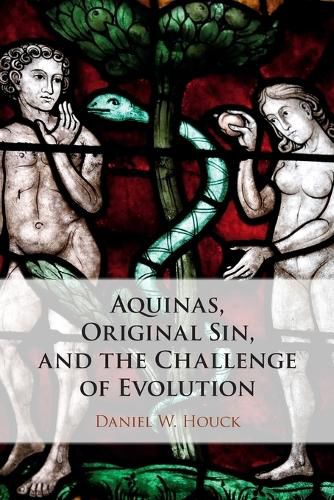Readings Newsletter
Become a Readings Member to make your shopping experience even easier.
Sign in or sign up for free!
You’re not far away from qualifying for FREE standard shipping within Australia
You’ve qualified for FREE standard shipping within Australia
The cart is loading…






Is original sin compatible with evolution? Many today believe the answer is ‘No’. Engaging Aquinas’s revolutionary account of the doctrine, Daniel W. Houck argues that there is not necessarily a conflict between this Christian teaching and mainstream biology. He draws on neglected texts outside the Summa Theologiae to show that Aquinas focused on humanity’s loss of friendship with God - not the corruption of nature (or personal guilt). Aquinas’s account is theologically attractive in its own right. Houck proposes, moreover, a new Thomist view of original sin that is consonant with evolution. This account is developed in dialogue with biblical scholarship on Jewish hamartiology and salient modern thinkers (including Kant, Schleiermacher, Barth, and Schoonenberg), and it is systematically connected to debates over nature, grace, the desire for God, and justification. In addition, the book canvasses a number of neglected premodern approaches to original sin, including those of Anselm, Abelard, and Lombard.
$9.00 standard shipping within Australia
FREE standard shipping within Australia for orders over $100.00
Express & International shipping calculated at checkout
Is original sin compatible with evolution? Many today believe the answer is ‘No’. Engaging Aquinas’s revolutionary account of the doctrine, Daniel W. Houck argues that there is not necessarily a conflict between this Christian teaching and mainstream biology. He draws on neglected texts outside the Summa Theologiae to show that Aquinas focused on humanity’s loss of friendship with God - not the corruption of nature (or personal guilt). Aquinas’s account is theologically attractive in its own right. Houck proposes, moreover, a new Thomist view of original sin that is consonant with evolution. This account is developed in dialogue with biblical scholarship on Jewish hamartiology and salient modern thinkers (including Kant, Schleiermacher, Barth, and Schoonenberg), and it is systematically connected to debates over nature, grace, the desire for God, and justification. In addition, the book canvasses a number of neglected premodern approaches to original sin, including those of Anselm, Abelard, and Lombard.